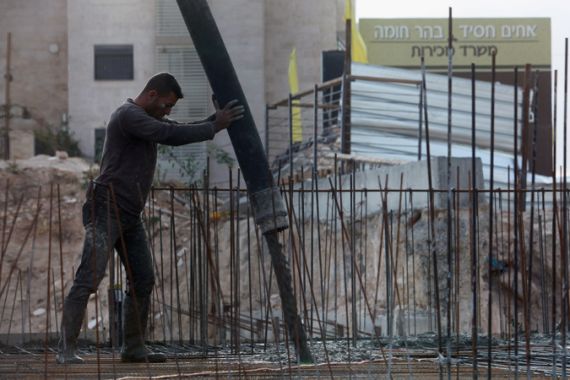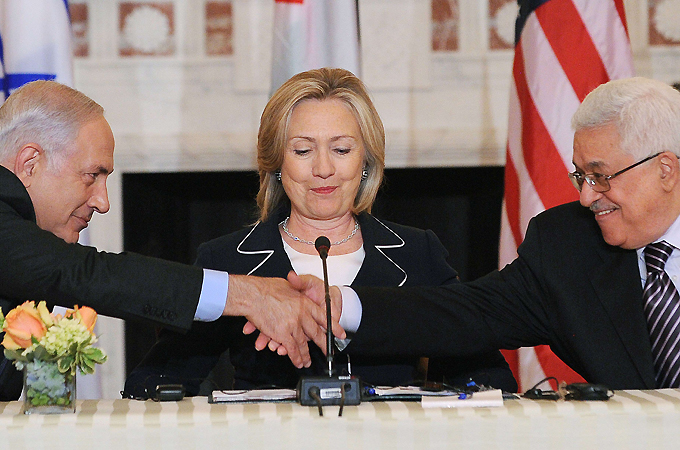Clinton: Time is ripe for peace
Seeking concessions from Palestinians and Israelis, Clinton heads to Egypt for second round of direct peace talks.

 |
| Clinton says both Israeli and Palestinian leaders “recognise time is not on either of their sides.” [AFP] |
US Secretary of State Hillary Clinton has urged both Israel and the Palestinians to find ways to clear the “hurdle” posed by a looming expiration of Jewish settlements.
Flying to the Egyptian Red Sea resort of Sharm al-Shaikh on Monday, Clinton repeated US President Barack Obama’s call on Friday for Israel to extend the 10-month moratorium on settlements that is due to expire on September 26.
Clinton’s message carried a sense of urgency, saying that the “time was ripe” for solution to the Palestinian-Israeli conflict.
But she left the door open to creative solutions, urging both sides to make reciprocal gestures that would maintain the momentum in the direct negotiations that were launched in Washington on September 2.
Clinton is due to hold the second round of negotiations in Egypt with both Israeli Prime Minister Benjamin Netanyahu and Palestinian President Mahmoud Abbas. She is also to meet President Hosni Mubarak of Egypt, a key Arab mediator.
“We believe that the moratorium should be extended,” the chief US diplomat told reporters before her plane landed in Shannon, Ireland, for refuelling.
“At the same time we recognise that an agreement that could be forged between the Israelis and the Palestinians on actions that would be taken by both sides that would enable the negotiations to continue is in the best interests of both sides,” she said.
Settlement freeze
The Palestinians have warned that if the moratorium is not extended, the negotiations could come to a complete halt.
The current freeze has not prevented the Israeli government from approving new settlements in East Jerusalem.
Clinton laughed aloud at what she saw as the irony of the Arabs sharply criticising her late last year when, during a trip to Jerusalem, she praised as “unprecedented” the partial moratorium on settlements that Netayahu offered.
“I took my fair share of the criticism,” the chief US diplomat said.
“It was an unprecedented decision by an Israeli government and now we’re told that negotiations can’t continue unless something that was viewed as being inadequate continues as well,” she said.
Besides Egypt, Clinton was due for talks with both leaders in Jerusalem and the West Bank town of Ramallah.
Big challenges
“We understand that we face some immediate obstacles that we hope to resolve in the next couple of weeks,” US State Department spokesman Philip Crowley told reporters on the eve of the talks.
And Netanyahu, said Clinton, has made it clear that Israel faces severe security challenges as the Iranian-backed Hezbollah in Lebanon and Hamas in the Gaza Strip acquire more dangerous missiles and rockets.
As for Abbas, she said he has long called for a two-state solution but must prove to the Palestinian people he can achieve the goal through negotiations rather than armed resistance.
When Clinton brokered the launch of direct negotiations on September 3 in Washington, both sides agreed to resolve within a year the core issues of Israeli security, borders of a Palestinian state, the fate of Palestinian refugees and the status of Jerusalem.
The Palestinians want a state in the West Bank and Gaza, with East Jerusalem as its capital. Netanyahu has embraced a two-state solution, but has shown no sign on yielding on Jerusalem as the undivided capital of the Jewish state.